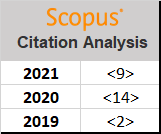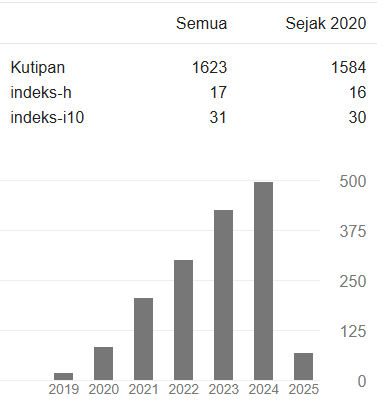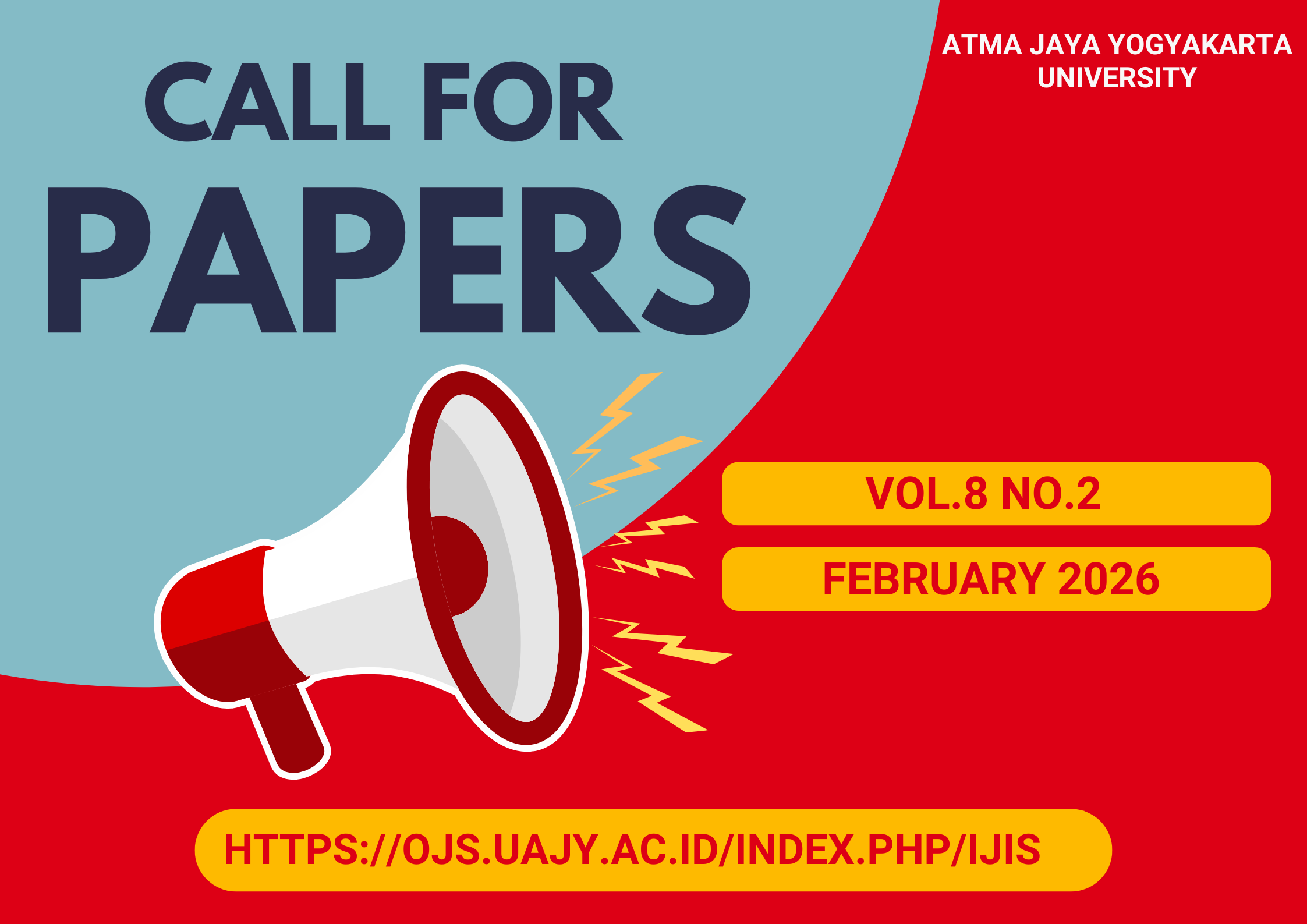Importance IT Role of IT Self-Efficacy towards Actual Competency, IT Usage, and Productivity: A Case Study on University Students
DOI:
https://doi.org/10.24002/ijis.v7i2.10044Abstract
Teaching how to use technology and encouraging students to improve their learning productivity by using technology are challenging. This study aims to investigate the important role of IT self-efficacy towards IT actual competency, actual usage of IT, and productivity in the case of university students to propose a teaching strategy that can improve students’ competency from “know-what” to “know-how” continued to real usage and productivity. It produces a model of the relationships between IT self-efficacy, IT actual competency, actual usage of information technology, and productivity. The relationships were quantitively measured using data from 89 students. The construct validity of the measurement model was examined using convergent and discriminant validity analysis. The hypothesized model was tested using structural equation modeling and bootstrap analysis. The findings suggest that IT self-efficacy does not directly impact actual usage and productivity. Still, it directly affects IT actual competency, leading to actual usage and productivity. In terms of novelty, this study examines a comprehensive relationship between 4 variables: IT self-efficacy, IT actual competency, IT usage, and Productivity, while the other existing studies just examined the relationships between 2 variables: IT self-efficacy and IT actual competency, IT self-efficacy and attitude towards IT usage, IT self-efficacy and IT Usage. For practical contributions, this study highlights the importance of improving students’ IT self-efficacy as an initial strategy to motivate students to use technology in their learning process which can lead to improved productivity.
References
[1] M. O. Hegazi and M. Alhawarat, "The Challenges and the Opportunities of Teaching the Introductory Computer Programming Course: Case Study," 2015 Fifth International Conference on e-Learning (econf), Manama, Bahrain, 2015, pp. 324-330, doi: 10.1109/ECONF.2015.61.
[2] Abdelhammid, B. (2020). Technological training in higher education: lessons and recommendations. The Role of Technological Means in Academic Learning and Research.
[3] D. R. Compeau and C. A. Higgins, “Computer Self-Efficacy: Development of a Measure and Initial Test.,” MIS Quarterly, pp. 189-211, 1995.
[4] G. M. Marakas, M. Y. Yi and R. D. Johnson, “The Multilevel and Multifaceted Character of Computer Self-Efficacy Toward Clarification of the Construct and an Integrative Framework for Research.,” Information Systems Research, pp. 126-163, 1998.
[5] H. V. Kher, J. P. Downey and E. Monk, “A longitudinal examination of computer self-efficacy change trajectories during training,” Computers in Human Behavior, pp. 1816-1824, 2013.
[6] G. Bassellier, B. H. Reich and I. Benbasat, “Information Technology Competence of Business Managers: A Definition and Research Model,” Journal of Management Information Systems, pp. 159-182, 2001.
[7] K. Aesaert, J. v. Braak, D. v. Nijlen and R. Vanderlinde, “Primary school pupils' ICT competences: Extensive model and scale Development.,” Computers & Education, pp. 326-344, 2015.
[8] Bandura, “Self-efficacy: Toward a Unifying Theory of Behavioral Change.,” Psychological Review , pp. 191-215, 1977.
[9] D. Compeau, C. A. Higgins and S. Huff, “Social Cognitive Theory and Individual Reactions to Computing Technology: A Longitudinal Study.,” MIS Quarterly, pp. 145-158, 1999.
[10] B. Marcolin, D. Compeau, M. Munro and S. Huff, “Assessing user competence: Conceptualization and measurement.,” Information Systems Research, pp. 37-60, 2000.
[11] Bhagwatwar, N. Hara and M. A. Ynalvez, “Out of Asia: Understanding the nexus between technology usage andresearch productivity in Japan, Singapore, and Taiwan.,” International Journal of Information Management, p. 963– 970, 2013.
[12] E. Brynjolfsson and L. M. Hitt, “Beyond the Productivity Paradox: Computers are the Catalyst for Bigger Changes,” pp. 1-18, 1998.
[13] H. Tanuwijaya, “Pengukuran Tingkat Kematangan Sistem Informasi Berdasarkan Critical Success Factors Pada Instalasi Rawat Inap Rumah Sakit Umum Surabaya,” SNASTIA, pp. 1-6, 2013.
[14] Fadzilah, “Analisis Pengaruh Pemberdayaan Karyawan dan Self of Efficacy Terhadap Kinerja Karyawan Bagian Penjualan (Studi Kasus Pada Pt. Sinar Sosro Wilayah Pemasaran Semarang),” Jurnal Study Manajement & Organisasi, pp. 12-27, 2006.
[15] H. P. Shih, “Assessing the effects of self-efficacy and competence on individual satisfaction with computer use: an IT student perspective.,” Computers in Human Behavior 22, p. 1012–1026, 2006.
[16] K. Ariati K. and R. Rahardja, “Pengaruh Kompetensi Auditor Terhadap Kualitas Audit Dengan Kecerdasan Spiritual Sebagai Variabel Moderating (Studi Persepsi Auditor Pada Badan Pengawasan Keuangan Dan Pembangunan Provinsi Jawa Tengah),” Diponegoro Journal of Accounting, pp. 1-9, 2014.
[17] P. Wijaya, “Penggunaan Teknologi Sistem Informasi Dan Pengaruhnya Terhadap Kinerja Individual Di Circle K.,” E-Jurnal Akuntansi Universitas Udayana , pp. 34-54, 2013.
[18] S. Maria, “Faktor Pendorong Peningkatan Produktivitas Tenaga Kerja Wanita Sektor Industri, Perdagangan, Dan Jasa di Kalimantan Timur.,” Forum Ekonomi, pp. 55-68, 2012.
[19] P. Sari and Nurdiyanto., “Pengaruh Dimensi Pekerjaan Terhadap Produktivitas Kerja Karyawan.,” SEGMEN Jurnal Manajemen dan Bisnis, pp. 41-52, 2007.
[20] F. Pangumpia, “Pengaruh Iklim Komunikasi Organisasi Terhadap Produktivitas Kerja Karyawan Di Bank Prisma Dana Manado,” Journal “Acta Diurna”, 2013.
[21] H. Thomas, W. Maloney, M. Horner, G. Smith, V. Handa and S. Sanders, “Modeling construction labor productivity,” Journal of Construction Engineering and Management, pp. 705-726, 1990.
[22] M. Rachmat, “Enterpreneur Sebagai Pilihan Karir Mahasiswi Maluku Utara: Peran Efikasi Diri Dan Kepribadian.,” Jurnal Inovasi dan Kewirausahaan, pp. 186-197, 2012.
Downloads
Published
How to Cite
Issue
Section
License

This work is licensed under a Creative Commons Attribution-ShareAlike 4.0 International License.
Indonesian Journal of Information Systems as journal publisher holds copyright of papers published in this journal. Authors transfer the copyright of their journal by filling Copyright Transfer Form and send it to Indonesian Journal of Information Systems.

Indonesian Journal of Information Systems is licensed under a Creative Commons Attribution-NonCommercial 4.0 International License.

















